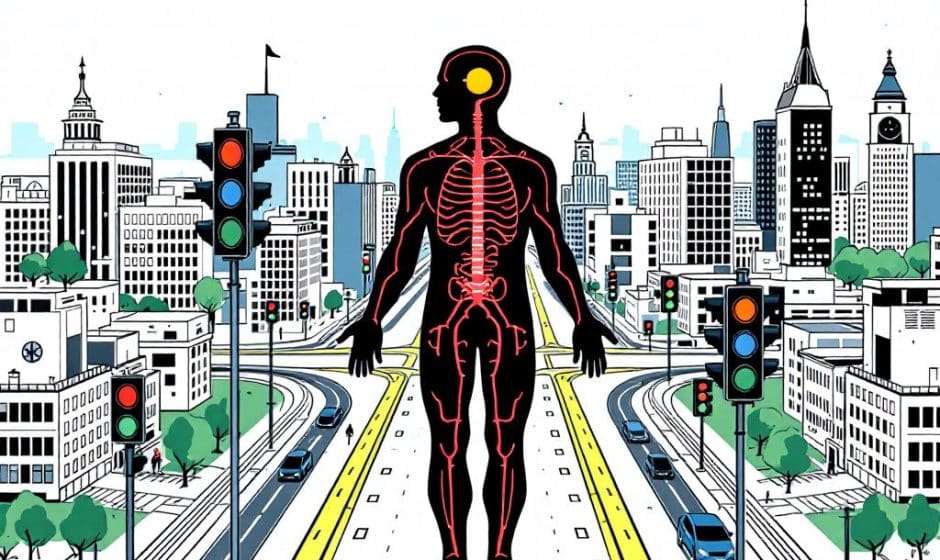Alright, let’s dive straight into something that doesn’t often come up at the dinner table but it’s super important—parasites. Yeah, I know, not the friendliest topic, but hang tight because understanding this can seriously change how you feel every day. Specifically, let’s chat about how these tiny invaders can wreak havoc on our hormones and how exactly we can manage this mess.
First off, imagine your body as a bustling city. Your hormones are basically the traffic signals and regulations that keep everything moving smoothly. But oh boy, throw a few parasites into the mix, and suddenly it’s like gridlock during rush hour. No one wants that, right?
How Parasites Impact Hormone Regulation
Parasites might sound like something out of a sci-fi novel, but they’re more common than we think. Whether picked up from contaminated food or poor hygiene, these microscopic pests make themselves comfy in our gut. Here’s the catch: their presence can mess with our hormone production and balance.
Take cortisol, for instance—the infamous stress hormone. When your body is busy fighting off an infection, such as a parasitic one, it often results in spikes of cortisol. This doesn’t just strain our bodies; it throws off the balance of other critical hormones like insulin and, in women, estrogen and progesterone. Imagine it like a troupe of circus performers but they’ve all forgotten their cues. It’s chaos rather than a synchronized performance.
Signs and Symptoms to Watch For
Wondering if open sesame seeds from the local farmer’s market could be the culprit behind your chronic fatigue? Well, it’s possible. Long-standing parasitic infections may lead to:

- Chronic Fatigue and Weakness: Feeling wiped out even after a good night’s sleep.
- Changes in Appetite or Weight Loss: Eating differently or unwanted weight dropping off.
- Digestive Issues: We’re talking bloating, gas, or just a constant ‘off’ feeling in your gut.
- Mood Swings or Anxiety: Because parasites are at it altering neurotransmitter functions too.
If a few of these sound eerily familiar, don’t panic—just know there are ways to tackle this head-on.
Strategies for Parasite-Induced Hormone Imbalances
1. Understand Your Gut
First things first, we need a clear picture of what’s going on in there. A medical professional might suggest specific tests that identify if parasites are playing host in your gut. It’s all about dying those intruders before setting out a game plan.
2. Diet Changes: The Power of Food
Okay, so cleansing might not mean what you think. A diet that supports a possible parasite cleanse includes:
- High-Fiber Foods: Think fruits and veggies that keep your digestive system on its toes.
- Fermented Foods: Like yogurt or kefir, which boost your good gut bacteria.
- Antimicrobial Herbs and Foods: Garlic, clove, or even pumpkin seeds—they nudge those pesky parasites out.
Include these simple changes gradually. Trust me on this one, a radical transformation overnight might spell irritation rather than relief for your tummy.

3. Consider Supplements
Supplements can be part of the equation. Some professionals might recommend specific probiotics to restore gut flora. Plus, certain herbal supplements have antimicrobial properties that give evasive hitchhikers the boot while balancing hormones.
4. Stress Management
Seriously, though, tackling stress is not just good advice—it’s vital when dealing with parasite-induced hormone disruption. Incorporate stress-reducing practices like yoga or even just a laid-back evening walk.
The Role of Sleep
Speaking of rest, synchronized sleep is not just about dodging bags under your eyes. Quality shut-eye is pivotal in hormone regulation. Remember cortisol? Too little sleep can keep it elevated, leaving other hormone functions out of whack. So, cozy up under the covers for a decent seven to nine hours nightly.

Professional Guidance: Your Best Friend
Working with healthcare professionals to restore your natural balance cannot be stressed enough. They may recommend a specific treatment for the parasites and a targeted hormone regulation plan. Every body is unique, so let experts guide this journey.
Circling Back to Hormone Regulation
Alright, we’ve touched on parasitic infections messing up your hormone jazz, and by now, hopefully, you’ve picked up on just how interconnected everything is. Although a comprehensive parasite cleanse can be the start, never underestimate whatever comes next—ongoing diet, stress management, and maybe even follow-up consultations.
Quick Recap the Core Takeaways
- Parasites disrupt hormone balance. They shift priority within our body by shifting stress responses.
- Lifestyle adjustments are your allies: From tummy-loving food tweaks to squeezing in an extra yogic flow.
- Holistic Approach: Integration of diet, supplements, stress management, and sufficient sleep are pillars in taming the hormonal havoc.
Okay, we’ve covered some ground, time to take stock. This wasn’t your average feel-good talk, but plugging into these networks means flourishing in ways you didn’t think possible. Hormone regulation doesn’t just happen—it demands a consistent partnership between you and your habits. Ready to reclaim your comfy lane in city life? The lights are in your control!
With a touch of conviction and a sprinkle of casual learning vibes, anyone straddling this road gets one important thing: Understanding itself becomes your first passport to change. Who knew? Adjust a few lights here and there and see your health transform. Stay engaged and attentive, because your inner traffic report suggests things are and will be moving smoothly if you wish so.
Frequently Asked Questions
What is hormone regulation and how does it work?
Hormone regulation involves the balance and functioning of hormones in the body. Hormone replacement therapy (HRT), for example, works by topping up or replacing missing hormones, such as oestradiol, progesterone, and sometimes testosterone, which are essential chemical messengers influencing every cell and organ in the body[1][5].
What are the common symptoms of hormonal imbalance?
Common symptoms of hormonal imbalance include irritability and fatigue, mood swings and depression, skin dryness and loss of elasticity, water retention and weight gain, osteoporosis and joint pain, less interest in sex, insomnia, and memory issues. These symptoms can arise during various life stages such as puberty, pregnancy, perimenopause, and menopause[5].
How can hormone replacement therapy (HRT) help with hormonal imbalance?
HRT helps by restoring stable hormone levels, leading to improved sleep, increased energy, enhanced memory, better concentration, elevated mood, smoother skin, increased interest in sex, better weight regulation, and protection of joints and bones. It can be tailored to individual needs and comes in various forms such as pills, patches, gels, and creams[1][5].
What types of hormone replacement therapies are available?
There are several types of hormone replacement therapies, including systemic hormone therapy (in pill form, patches, rings, gels, or sprays), low-dose vaginal products (for vaginal and urinary symptoms), and bioidentical hormone replacement therapy (which uses hormones identical in structure to human hormones and may have fewer side effects)[5].
References



